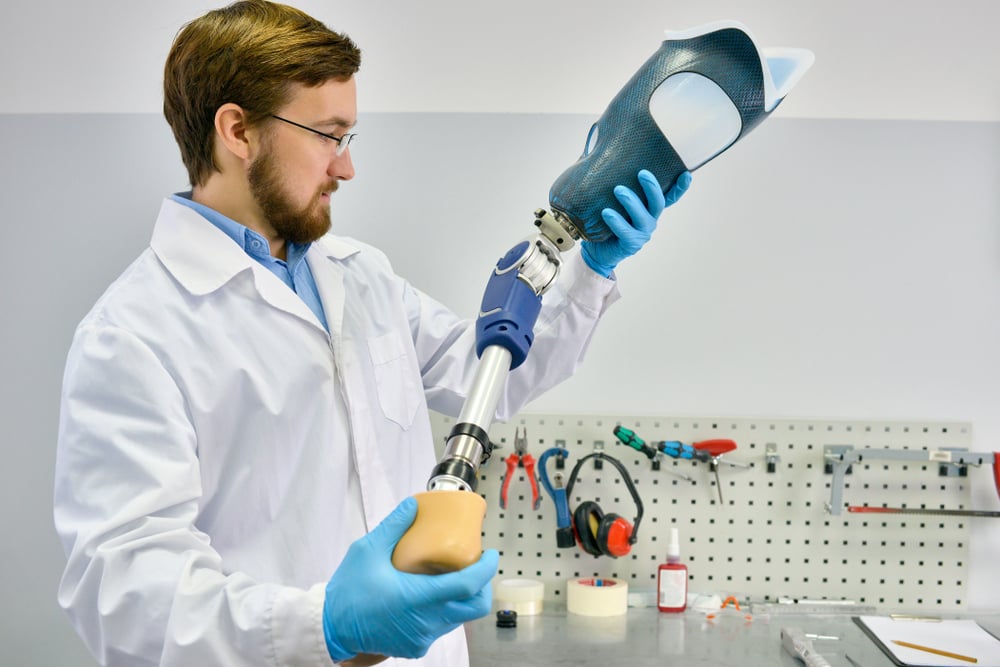Building Prosthetics from Recycled Plastic
 With the plastic crisis becoming more apparent, lots of organisations are working towards a solution. Some companies are looking for ways to recycle waste plastic into products, such as Pilot with their B2P Gel pens, while some are working towards removing plastic packaging from their supply chain and others, such as The Ocean Cleanup, are innovating new methods to remove the plastics that already litter the oceans.
With the plastic crisis becoming more apparent, lots of organisations are working towards a solution. Some companies are looking for ways to recycle waste plastic into products, such as Pilot with their B2P Gel pens, while some are working towards removing plastic packaging from their supply chain and others, such as The Ocean Cleanup, are innovating new methods to remove the plastics that already litter the oceans.
Putting Old Plastic to Good Use
There are worrying amounts of plastic that pollute the earth. Research suggests that only 7% of the one million water bottles that are bought every day are recycled with the remainder ending up in landfill or polluting the seas.
It is also estimated that there are around 45,000 people in England that rely on prosthetic limbs, with the NHS spending around 60 million a year on care for patients with an amputation or congenital limb deficiency.
Building Prosthetics from Recycled Plastic
That is why researchers at De Montfort University set out to find a way to develop prosthetic limbs from recycled plastic. They pioneered a method that means plastic bottles can be turned into prosthetic limbs which are 40% lighter and thousands of pounds cheaper than existing models.
Researchers say that the new technique enables a more precise fit around the patient’s stump than carbon or glass fibre models and reduces the risk of infection because it is more breathable.
Artificial limbs are traditionally made from bulk plastic and are heavy and not durable. The new design spins recycled Polyethylene terephthalate (PET), the material used to make plastic bottles, into yarns 10 times stronger than bulk plastic. The yarns are then knitted into a porous socket which keeps the patient cooler.
It takes approximately five one-litre bottles to make one prosthetic socket and costs just £10 a unit – 500 times cheaper than the standard price of £5,000.
Two patients in India have been fitted with the new prosthetics made from recycled plastic that otherwise would have ended up in landfill or in the oceans. The patients have reported that they are impressed with the legs and that they find them lightweight and easy to walk with.
The team are now preparing a larger international trial of the new material which would give an evidence base allowing health chiefs to adopt the design for routine use.
The Future of Plastic
Plastic bottles are notoriously difficult to recycle. One of the biggest problems with plastic is that it can’t be recycled and reused for the same purpose. Upcycling recycled plastics into new products is an extremely valuable solution to the pollution problem we are all facing – especially when it can help to tackle other global issues such as the supply of affordable prosthetics.
It is essential that we all do our bit to reduce our plastic consumption and support companies that are pioneering new methods to develop products from recycled plastic.